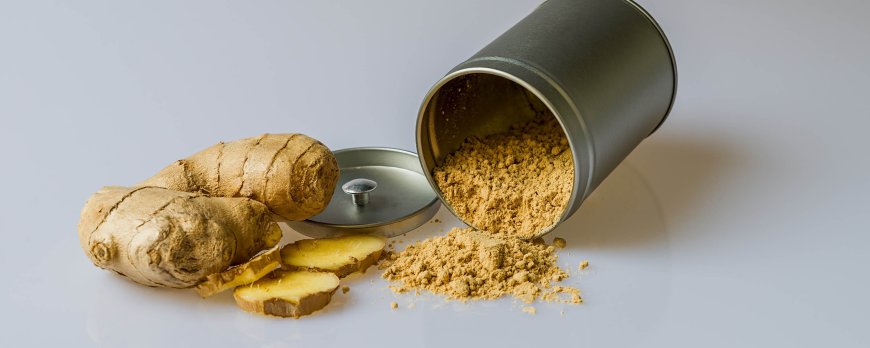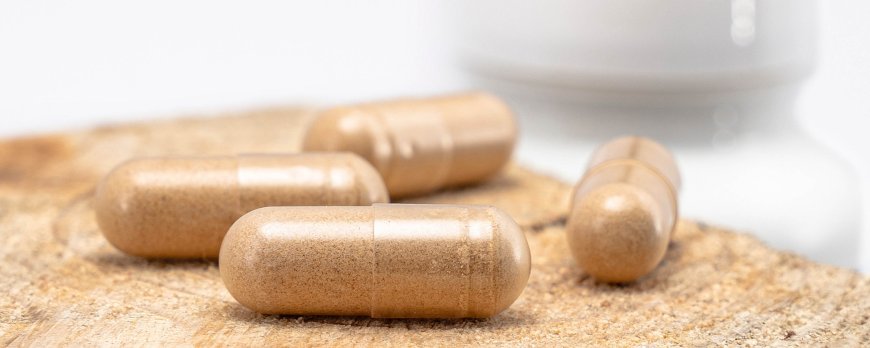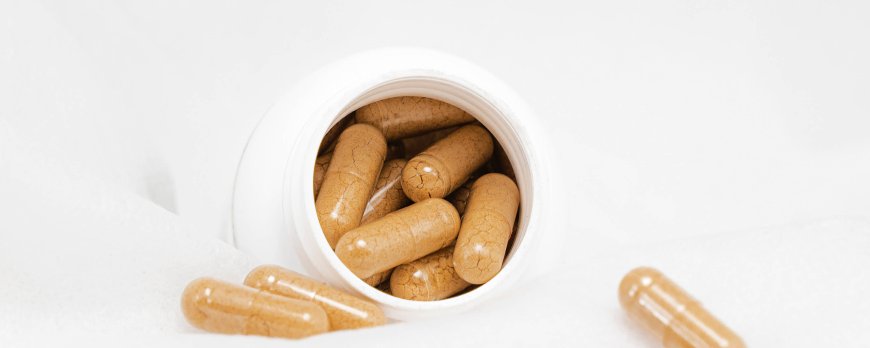Should I take turmeric in the morning or at night?
'Should I take turmeric in the morning or at night?' Explore this question with us, while uncovering the most effective time for your turmeric intake.

Should I Take Turmeric in the Morning or at Night?
Many people wonder whether it is better to take turmeric in the morning or at night for optimal effects. While the timing of turmeric intake may not significantly impact its effectiveness, consistency in consumption is key. However, there are factors to consider that may enhance turmeric absorption and bioavailability, such as pairing it with healthy fats and black pepper. Additionally, curcumin supplements offer a concentrated and convenient form of turmeric intake. It's important to note that turmeric can interact with certain medications, so consulting with a doctor is crucial. Lastly, while there is no official recommended dosage, studies suggest a range of 400-600mg of curcumin three times a day or a 1,200mg once-daily regimen.
Key Takeaways:
- Consistency in turmeric consumption is more important than the specific timing.
- Pairing turmeric with healthy fats can enhance its absorption.
- Black pepper can increase the bioavailability of turmeric.
- Curcumin supplements provide a concentrated and convenient form of turmeric intake.
- Consulting with a doctor is essential, especially if you are taking medications.

Factors to Consider for Turmeric Intake Timing
The timing of turmeric intake can influence its absorption and overall effectiveness. While there is no significant difference between taking turmeric in the morning or at night in terms of its benefits, consistency in consumption is key. However, there are several factors to consider when deciding on the best time to take turmeric.
Absorption and Meal Timing
Turmeric is a fat-soluble compound, which means it is better absorbed when taken with a meal that includes healthy fats. Incorporating turmeric into meals that contain ingredients like avocados, nuts, or olive oil can enhance its absorption. This is because the presence of dietary fat helps the body absorb and utilize the active compounds in turmeric.
Boosting Bioavailability with Black Pepper
Another factor to consider is the addition of black pepper to turmeric. Black pepper contains a compound called piperine, which has been found to improve the bioavailability of curcumin, the active component in turmeric. Piperine helps inhibit certain enzymes that break down curcumin, allowing more of it to be absorbed into the bloodstream. Therefore, taking turmeric with a pinch of black pepper can optimize its effects.
Considerations for Medication Interactions
It is important to note that turmeric can interact with certain medications, such as blood thinners, antiplatelet drugs, and stomach acid-reducing medications. If you are taking any medications, it is crucial to consult with your doctor before incorporating turmeric into your daily routine. They can advise you on the appropriate timing and dosage to avoid any potential interactions or adverse effects.
- Consistency in consumption is more important than the specific time of day.
- Take turmeric with a meal that contains healthy fats to enhance absorption.
- Add a pinch of black pepper to improve bioavailability.
- Consult with a doctor if you are taking any medications to ensure there are no interactions.
Remember, there is no official recommended dosage for turmeric intake. However, studies suggest a range of 400-600mg of curcumin three times a day or a 1,200mg once-daily regimen for optimal benefits. It is always best to start with a lower dosage and gradually increase as needed, under the guidance of a healthcare professional.

Turmeric Absorption and Bioavailability
Turmeric is a fat-soluble spice, and its absorption can be enhanced by consuming it with foods that contain healthy fats. When turmeric is consumed with fats, such as avocado, olive oil, or coconut milk, the body is better able to absorb and utilize its beneficial compounds, including the active ingredient curcumin. Including a source of healthy fats in your meal when consuming turmeric can optimize its absorption and increase its bioavailability.
In addition to consuming turmeric with healthy fats, another way to enhance its bioavailability is by combining it with black pepper. Black pepper contains a compound called piperine, which has been shown to improve the absorption of curcumin by up to 2,000%. When turmeric and black pepper are consumed together, the piperine in black pepper inhibits the enzymes that break down curcumin in the body, allowing for greater absorption and utilization of its health-promoting properties.
To summarize, for optimal absorption and bioavailability of turmeric, it is recommended to consume it with foods that contain healthy fats, such as avocado or olive oil, and to include black pepper in your turmeric-containing meals. By doing so, you can ensure that your body is able to absorb and utilize the beneficial compounds in turmeric, maximizing its effectiveness.
Boosting Turmeric Bioavailability with Black Pepper
Adding black pepper to turmeric can significantly improve the bioavailability of curcumin, the active compound in turmeric. Curcumin is known for its powerful anti-inflammatory and antioxidant properties, but its absorption into the bloodstream can be limited. However, the piperine compound found in black pepper can enhance the absorption of curcumin, making it more effective.
When turmeric is combined with black pepper, the piperine inhibits certain enzymes in the liver and intestines that break down curcumin. This allows curcumin to remain in the body for a longer duration, increasing its bioavailability. Studies have shown that consuming turmeric with black pepper can increase curcumin absorption by up to 2000%.
How to Incorporate Black Pepper with Turmeric
- Sprinkle freshly ground black pepper on turmeric-spiced dishes to enhance absorption and maximize the benefits of curcumin.
- Add a small pinch of black pepper to turmeric-infused teas or golden milk recipes for an added boost.
- Consider purchasing turmeric supplements that already contain black pepper extract for convenient consumption.
However, it is important to note that black pepper may not be suitable for everyone. Individuals with gastrointestinal issues or sensitivity to spicy foods should exercise caution when incorporating black pepper into their diet.

Curcumin Supplements for Convenience and Concentration
Curcumin supplements can offer a more concentrated form of turmeric and provide convenience for consistent intake. These supplements contain higher concentrations of curcumin, the active compound in turmeric, and are available in various forms such as capsules, tablets, or powders. By taking curcumin supplements, individuals can ensure they are getting a consistent dosage without worrying about the variability of turmeric powder.
In addition to convenience, curcumin supplements also offer a more concentrated source of turmeric. This is beneficial for individuals who may require higher doses or are looking for targeted benefits. While turmeric powder typically contains around 2-5% curcumin, curcumin supplements can contain up to 95% curcumin, providing a more potent and effective form of turmeric consumption.
To incorporate curcumin supplements into your routine, it is recommended to follow the dosage instructions provided on the product packaging or consult with a healthcare professional. This will ensure you are taking the appropriate amount for your individual needs. It is also important to note that curcumin supplements are not suitable for everyone and may interact with certain medications, so it's crucial to discuss with your doctor before starting any new supplementation regimen.
Benefits of Curcumin Supplements:
- Convenience for consistent intake
- Higher concentration of curcumin for targeted benefits
- Potentially more potent and effective than turmeric powder
Consistency in Turmeric Consumption
Consistency in turmeric consumption is key to experiencing its potential benefits. While the best time to take turmeric may not significantly affect its effectiveness, establishing a regular dosing schedule can maximize the positive effects of this powerful spice. Turmeric contains a compound called curcumin, which has been widely studied for its potential health benefits.
When incorporating turmeric into your daily routine, it is important to remember that curcumin is fat-soluble. This means that consuming turmeric with a meal that includes healthy fats can enhance its absorption in the body. Consider adding some avocado, olive oil, or nuts to your turmeric dish to ensure optimal absorption.
In addition to dietary considerations, the bioavailability of turmeric can be further increased by combining it with black pepper. Black pepper contains a compound called piperine, which has been shown to enhance the absorption of curcumin. Try sprinkling a pinch of black pepper or adding it to a turmeric-infused recipe to reap the benefits of this potent combination.
Summary:
- Consistency in turmeric consumption is important for maximizing its potential benefits.
- Consume turmeric with a meal that includes healthy fats to enhance absorption.
- Combining turmeric with black pepper can further increase its bioavailability.
While taking turmeric in its natural form can be beneficial, some individuals may prefer the convenience and concentration of curcumin supplements. However, it is important to note that turmeric can interact with certain medications. If you are taking any medications, it is crucial to consult with your healthcare provider before incorporating turmeric or any supplements into your daily routine.
While there is no official recommended dosage for turmeric intake, studies suggest a range of 400-600mg of curcumin three times a day or a 1,200mg once-daily regimen. However, it is always best to consult with a healthcare professional to determine the dosage that is right for you based on your specific health needs and circumstances.
In conclusion, establishing a consistent turmeric dosing schedule, whether in its natural form or through supplements, is key to experiencing its potential benefits. By consuming turmeric with healthy fats, combining it with black pepper, and consulting with your healthcare provider, you can optimize the timing and effectiveness of your turmeric consumption, ultimately supporting your overall well-being.
Interactions Between Turmeric and Medications
It is crucial to consult with a healthcare professional before starting turmeric if you are on any medications, as it can interact with certain drugs. Turmeric contains compounds that may interfere with the metabolism of medications, potentially affecting their efficacy or causing unwanted side effects. By discussing your medication regimen with your doctor, you can ensure that turmeric consumption will not negatively impact your health and well-being.
When consumed in large amounts or in combination with certain medications, turmeric may increase the risk of bleeding or interfere with blood clotting. This can be particularly concerning for individuals taking blood thinners or antiplatelet medications. Furthermore, turmeric may interact with drugs that are metabolized by the liver, potentially affecting their effectiveness or leading to toxic buildup.
By consulting with your healthcare professional, they can evaluate your specific medication profile and provide guidance on the safest way to incorporate turmeric into your routine. They may recommend adjusting the timing of your medication doses or monitoring your blood levels more closely to ensure that there are no adverse interactions. Remember, it is always better to err on the side of caution and seek medical advice when considering any changes to your medication regimen.
Key Points:
- Consult with a healthcare professional before starting turmeric if you are on any medications
- Turmeric can interact with certain medications
- Large amounts of turmeric and certain medications may increase the risk of bleeding
- Turmeric can interfere with the effectiveness of drugs metabolized by the liver
- Work with your healthcare professional to adjust medication timing and monitor for any adverse interactions

Recommended Dosage for Turmeric Intake
While there is no official recommended dosage for turmeric, studies suggest a range of 400-600mg of curcumin three times a day or a 1,200mg once-daily regimen. It is important to note that the dosage may vary depending on the individual's health goals and overall well-being. Consulting with a healthcare professional is always advised before starting any new supplement regimen.
When incorporating turmeric into your daily routine, consistency is key. Taking turmeric consistently and as directed can maximize its potential benefits. It is also recommended to take turmeric with a meal that contains healthy fats, as turmeric is fat-soluble. This can enhance the absorption of turmeric and the active compound, curcumin, in the body.
Adding black pepper to turmeric can further boost its bioavailability. Black pepper contains a compound called piperine, which has been shown to enhance the absorption of curcumin in the body. This combination can optimize the effects of turmeric intake and increase its overall effectiveness.
Summary:
- The recommended dosage for turmeric intake is not officially established, but studies suggest a range of 400-600mg of curcumin three times a day or a 1,200mg once-daily regimen.
- Consistency in turmeric consumption is important to maximize its potential benefits.
- Taking turmeric with a meal that contains healthy fats can enhance its absorption in the body.
- Adding black pepper to turmeric can increase its bioavailability and optimize its effects.
As with any supplement, it is crucial to consult with a healthcare professional, especially if you are taking any medications. Turmeric can interact with certain medications, and your doctor can provide personalized guidance based on your individual health needs.
In summary, while there is no official recommended dosage for turmeric intake, studies suggest a range of 400-600mg of curcumin three times a day or a 1,200mg once-daily regimen. Consistency, taking turmeric with healthy fats, and combining it with black pepper can enhance its absorption and effectiveness. Consulting with a healthcare professional is important, especially if you are taking medications. By following these guidelines, you can make the most of turmeric's potential health benefits.
Benefits of Taking Turmeric in the Morning
Taking turmeric in the morning may offer benefits such as increased energy and improved digestion for some individuals. While the timing of turmeric consumption does not significantly affect its overall effectiveness, there are certain advantages to incorporating it into your morning routine.
1. Enhanced energy levels: Turmeric contains curcumin, which has anti-inflammatory properties and may help boost energy levels. Starting your day with turmeric can provide a natural energy boost and help you feel more alert and focused.
2. Improved digestion: Turmeric has long been used as a digestive aid in traditional medicine. Taking it in the morning can help stimulate digestion and support a healthy gut, which can contribute to improved overall well-being.
3. Consistency throughout the day: By taking turmeric in the morning, you ensure that you have already incorporated this beneficial spice into your daily routine. This can help maintain consistency and make it easier to remember to take turmeric regularly.
Additional Considerations:
It's important to note that individual preferences and reactions to turmeric may vary. While some individuals may experience the mentioned benefits, others may not notice a significant difference. It's always best to listen to your body and adjust your turmeric intake accordingly. If you are unsure about adding turmeric to your daily routine, consult with a healthcare professional for personalized advice.
In conclusion, taking turmeric in the morning can provide potential benefits in terms of increased energy and improved digestion for some individuals. However, the overall effectiveness of turmeric consumption is not significantly influenced by its timing. Consistency in consumption and individual preferences should be prioritized when incorporating turmeric into your daily routine.
Advantages of Taking Turmeric at Night
Taking turmeric at night may have advantages such as promoting relaxation and supporting better sleep for some individuals. The calming properties of turmeric, coupled with its potential to reduce inflammation, make it an ideal addition to an evening routine. Here are some benefits to consider:
- Improved sleep quality: Turmeric has been associated with enhanced sleep quality due to its ability to reduce inflammation and promote relaxation. Incorporating it into your nighttime routine may help you unwind and achieve a more restful sleep.
- Stress relief: The soothing effects of turmeric can help alleviate stress and anxiety, making it a great addition to your evening self-care routine. Whether in the form of a warm turmeric latte or a calming tea, consuming turmeric at night can help create a sense of calm and tranquility.
- Aid in digestion: Taking turmeric at night can also support digestion, as it has been found to have anti-inflammatory properties that may help reduce bloating and discomfort. Consuming turmeric after a meal can aid in the digestion process and promote a healthy gut.
Remember, the best time to take turmeric ultimately depends on your personal preference and routine. Some individuals may find that taking it in the morning works better for them, while others may experience more benefits from consuming it at night. It is important to listen to your body and find what works best for you.
As always, if you are considering incorporating turmeric into your daily routine, it is advisable to consult with a healthcare professional, especially if you are currently taking any medications. They can provide personalized guidance and ensure that turmeric is safe and suitable for your specific circumstances.
Summary of Optimal Turmeric Intake Timing
The optimal timing for turmeric intake largely depends on personal preference and consistency, with options of morning or evening intake offering potential benefits. While there is no significant difference in terms of the effectiveness of turmeric consumption at different times of the day, there are factors to consider that can enhance its absorption and bioavailability.
Fat-soluble and Bioavailability:
Turmeric is a fat-soluble spice, meaning it is better absorbed when consumed with healthy fats. Taking turmeric with a meal that includes fats like olive oil, coconut milk, or avocado can enhance its absorption and bioavailability. This allows the body to effectively utilize the beneficial compounds present in turmeric, such as curcumin.
Black Pepper and Curcumin Supplements:
Another way to increase the bioavailability of turmeric is by combining it with black pepper. Black pepper contains piperine, a compound that enhances the absorption of curcumin in turmeric. Adding a sprinkle of black pepper to your turmeric-based dishes or taking turmeric supplements that already include piperine can optimize the effects of turmeric intake.
Personal Preference and Consistency:
When deciding whether to take turmeric in the morning or evening, personal preference and consistency play a crucial role. Some individuals might find that taking turmeric in the morning helps boost energy levels and supports digestion throughout the day. On the other hand, taking turmeric at night may aid in relaxation and promote a restful night's sleep. It is essential to listen to your body and choose a time that aligns with your routine and goals.
Remember, it's always best to consult with a healthcare professional, particularly if you are taking any medications, as turmeric can interact with certain drugs. While there is no official recommended dosage for turmeric intake, studies suggest a range of 400-600mg of curcumin three times a day or a 1,200mg once-daily regimen. This can vary based on individual needs and health conditions, so it's important to seek personalized guidance from a healthcare provider.
In conclusion, the optimal timing for turmeric intake is subjective and depends on personal preference and consistency. By incorporating turmeric into your daily routine and considering factors like fat consumption, black pepper, and potential interactions with medications, you can maximize the benefits of this versatile spice.
Conclusion
Choosing whether to take turmeric in the morning or at night is a personal decision that should prioritize consistency and personal preference. The timing of turmeric intake does not significantly impact its effectiveness, but it is important to maintain a regular and consistent consumption schedule.
One key consideration is to take turmeric with a meal that contains healthy fats, as turmeric is fat-soluble. This can enhance the absorption of turmeric and help maximize its benefits. Additionally, adding black pepper to turmeric has been shown to increase its bioavailability, making it more effective in the body.
For those seeking a more concentrated and convenient form of turmeric intake, curcumin supplements are recommended. These supplements provide a higher concentration of curcumin, the active compound in turmeric, and can be taken according to a dosage schedule. However, it is important to note that turmeric can interact with certain medications, so it is crucial to consult with a doctor before incorporating turmeric into your daily routine if you are taking any medications.
While there is no official recommended dosage for turmeric intake, studies suggest a range of 400-600mg of curcumin three times a day or a 1,200mg once-daily regimen. It is always best to consult with a healthcare professional to determine the most appropriate dosage for your individual needs and circumstances.
In summary, the best time to take turmeric depends on personal preference and consistency. Whether you choose to take it in the morning or at night, ensure that you maintain a regular schedule and consider the benefits of consuming turmeric with healthy fats or black pepper for optimal absorption. By prioritizing consistency and personal preference, you can enjoy the potential benefits of turmeric intake in a way that suits your lifestyle.
FAQ
Should I take turmeric in the morning or at night?
The best time to take turmeric is not significant in terms of its effectiveness, but consistency in consumption is important.
What factors should I consider for turmeric intake timing?
Factors to consider for turmeric intake timing include its effectiveness and absorption.
How does turmeric absorption and bioavailability relate to timing?
Turmeric absorption can be enhanced by taking it with a meal that includes healthy fats, and adding black pepper can further boost its bioavailability.
How does black pepper help boost turmeric bioavailability?
Black pepper can enhance the bioavailability of turmeric, optimizing its effects when consumed together.
Are curcumin supplements recommended?
Curcumin supplements are recommended for maximum concentration and convenience.
How important is consistency in turmeric consumption?
Consistency in turmeric consumption is important to maximize its effectiveness.
Should I consult with a doctor before taking turmeric?
It is important to consult with a doctor before incorporating turmeric into your daily routine, especially if you are taking any medications.
What is the recommended dosage for turmeric intake?
There is no official recommended dosage, but studies suggest a range of 400-600mg of curcumin three times a day or a 1,200mg once-daily regimen.
What are the benefits of taking turmeric in the morning?
Taking turmeric in the morning may have potential benefits for energy levels and digestion.
What are the advantages of taking turmeric at night?
Taking turmeric at night may have potential advantages for relaxation and sleep quality.
What is the optimal timing for turmeric intake?
The optimal timing for turmeric intake depends on personal preference, consistency, and individual goals.































































































































